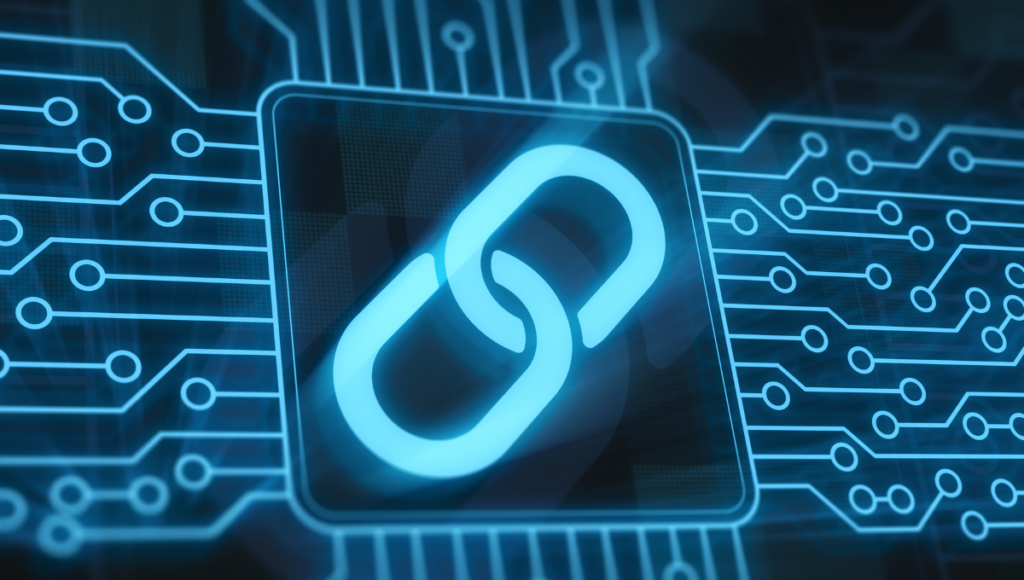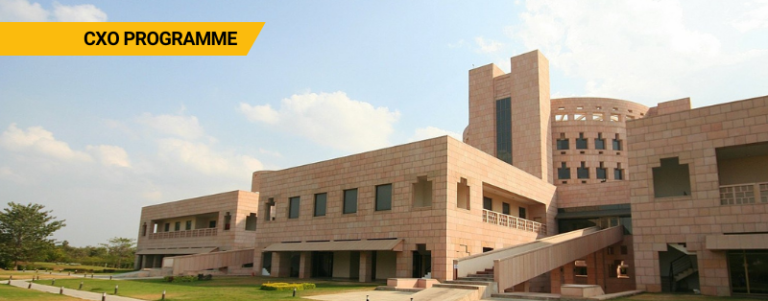Unlocking the Secrets to Becoming a Successful Blockchain Developer

- What Skills are Required to Become a Successful Blockchain Developer?
- How Can One Gain Experience in Blockchain Development?
- What Career Opportunities are Available for Blockchain Developers in the Next Decade?
- What are the Current Trends in Blockchain Technology?
- How Can One Stay Updated With the Latest Developments in Blockchain Development?
“Has the Internet changed our lives? Have mobile phones changed our lives? The blockchain is something that is transformative.” This statement by Brook Pierce, the renowned entrepreneur, succinctly captures the transformative power of blockchain. But what is blockchain? Blockchain is a cutting-edge database mechanism with a decentralized approach that has become increasingly popular in the tech industry. Now, even though many consider its enmeshment with cryptocurrency to be its shot to fame, the power of blockchain can be harnessed for a diverse range of objectives.
In accordance with the global trend, the Indian tech sector also witnessed the growth of blockchain in the past few years. For instance, capped at a mere $0.28 billion in 2019, the market volume of blockchain is projected to reach $4.3 billion by the end of the next year, growing at an astonishing 47.3% CAGR. With this revolutionary surge, blockchain development has become a promising career path with exciting opportunities for tech professionals. If you envision your career as a blockchain developer, here is what you must know to advance in this career.
What Skills are Required to Become a Successful Blockchain Developer?
 Before going into the pragmatic question of what skills you require to become a blockchain developer, let us first understand what blockchain really is. The first time blockchain technology appeared, albeit in a nascent state, was in 1982. In his 1982 doctoral dissertation titled Computer Systems Established, Maintained, and Trusted by Mutually Suspicious Groups, cryptographer David Lee Chaum first introduced the idea of a distributed computer system. This formed the backbone of blockchain technology. Later, blockchain technology was developed further by Stuart Haber and W. Scott Stornetta. It gained prominence with the launch of Bitcoin cryptocurrency in 2009, which showcased its potential as a form of distributed ledger technology (DLT).
Before going into the pragmatic question of what skills you require to become a blockchain developer, let us first understand what blockchain really is. The first time blockchain technology appeared, albeit in a nascent state, was in 1982. In his 1982 doctoral dissertation titled Computer Systems Established, Maintained, and Trusted by Mutually Suspicious Groups, cryptographer David Lee Chaum first introduced the idea of a distributed computer system. This formed the backbone of blockchain technology. Later, blockchain technology was developed further by Stuart Haber and W. Scott Stornetta. It gained prominence with the launch of Bitcoin cryptocurrency in 2009, which showcased its potential as a form of distributed ledger technology (DLT).
In essence, blockchain is a novel technology that allows for secure and unalterable transactions across a decentralized network. Beyond digital cryptocurrency, blockchain is now applied in various sectors, such as supply chain management, cybersecurity, healthcare, banking, and financial markets, to name a few. Moreover, in India, the government has been keenly interested in blockchain technology. For example, the Ministry of Electronics and Information Technology of the Indian government developed its National Strategy on Blockchain in 2021 with the stated objective of building a “vigilant and trusted collaborative digital ecosystem” to provide various e-governance services to citizens.
Now that we have briefly discussed the history of blockchain technology and illustrated its significance in both the public and private sectors, let’s look at what skills a blockchain developer needs.
1. Understand Distributed Ledger Technology
Blockchain technology allows tech professionals to build secure and immutable records. Multiple stakeholders hold copies of the historical ledger within the framework of a decentralized network. Hence, a blockchain developer must not only master Distributed Ledger Technology (DLT) but also understand its application across different sectors.
2. Proficiency in Computer Languages
Success as a blockchain developer requires mastery of programming languages such as Java, C++, Solidity, and Python. Proficiency in these languages is essential since it enables the creation and maintenance of complex blockchain architectures and applications. It enhances interoperability within the tech industry.
3. Knowledge of Blockchain Architecture
A blockchain developer must be skilled at understanding and working with diverse architectures—public, private, and consortium. Each of these architectures has specific use cases, such as enhancing security with private blockchains or fostering collaboration with consortium blockchains.
4. Expertise in Cryptography
Blockchain systems enhance privacy within a digital network and ensure secure transactions. Blockchain developers often deploy cryptogenic techniques such as hashing and digital signatures to do this. As a result, it protects data from unauthorized access and ensures transaction integrity. Thus, one must be adept at cryptography to succeed as a blockchain developer.
5. Development of Smart Contracts
Smart contracts are pivotal in automating enforcement in blockchain transactions. Hence, blockchain developers must be skilled in coding and deploying smart contracts that execute automatically under predefined conditions.
6. Knowledge of Data Structures
To build an effective blockchain, developers depend on complex data structures like linked lists, hash tables, and trees. They play a prominent role in various applications. These include data management, enhancing the speed of transactions, and improving the scalability of blockchain applications. Therefore, success in the field of blockchain development necessitates a solid grasp of complex data structures.
ALSO READ: How Can Your Organization Reap the Benefits of HR Digital Transformation?
How Can One Gain Experience in Blockchain Development?
1. Learn Programming Languages
An aspiring blockchain developer should master programming languages essential for blockchain technology. Solidity, Python, and JavaScript help in developing smart contracts and blockchain applications.
2. Attend Seminars and Conferences
Attending blockchain seminars and conferences provides valuable insights and helps identify the latest trends in the tech industry. They offer networking opportunities and workshops where participants can learn from seasoned professionals and experts in the field.
3. Join Blockchain Discussion Groups
Joining discussion groups and online communities dedicated to blockchain technology helps deepen understanding. They allow developers to engage in conversations, exchange ideas, and get feedback on blockchain development projects.
4. Work as an Apprentice
Working as an apprentice or intern in a blockchain development company provides hands-on experience. This practical exposure is invaluable, allowing developers to apply their theoretical knowledge in real-world scenarios, contributing directly to blockchain projects.
What Career Opportunities are Available for Blockchain Developers in the Next Decade?
The field of blockchain development offers a number of career opportunities for professionals. Listed below are some of them:
1. Blockchain System Developer
A blockchain developer designs, develops, and optimizes blockchain protocols and applications. They develop the underlying architecture for blockchain systems, creating web applications and smart contracts. As a result, their skills are sought after since companies are increasingly adopting blockchain technology across various platforms.
2. Blockchain Project Manager
Blockchain project managers spearhead projects that integrate blockchain into business operations. They strategize and oversee the implementation of blockchain solutions to enhance or replace existing technology frameworks. The role involves coordinating cross-functional teams to ensure project goals align with business objectives.
3. Blockchain Quality Assurance Engineer
Blockchain Quality Assurance (QA) engineers ensure that all blockchain applications operate according to strict standards. They develop and enforce QA protocols and automated testing procedures to maintain high-quality standards throughout the development lifecycle. They play a critical role in preventing defects and ensuring that the blockchain solutions are robust and reliable.
4. Blockchain Legal Advisor
With blockchain technology gaining mainstream across various sectors, there is a need for legal experts.. They consult on regulatory and compliance issues, helping organizations navigate the complex legal landscape surrounding blockchain technology.
5. Blockchain Interface Designer
Blockchain interface designers are responsible for creating user-friendly web interfaces that facilitate easy interaction with blockchain applications. Moreover, they focus on User Experience (UX) and User Interface (UI) design, crucial for making blockchain technology accessible to a broader audience. This role combines creative design skills with technical knowledge of how blockchain applications operate.
6. Blockchain Strategy Consultant
Blockchain strategy consultants analyze and recommend blockchain solutions to improve business operations. They evaluate existing processes and suggest the integration of blockchain to boost efficiency, transparency, and security. Their expertise helps companies leverage distributed ledger technology for competitive advantage. This makes them valuable assets in strategic planning and implementation.
ALSO READ: Top 10 Tips for Building a Digital Transformation Roadmap
What are the Current Trends in Blockchain Technology?
 1. Interoperability Enhances Blockchain Connectivity
1. Interoperability Enhances Blockchain Connectivity
Blockchain developers increasingly focus on interoperability to foster a seamless ecosystem. A decentralized blockchain network like Cosmos Network utilizes protocols like IBC, enabling blockchains to exchange data efficiently. Advancements in para-chain and bridge technologies facilitate efficient connections between distinct blockchain networks.
2. IoT Merges With Blockchain for Enhanced Security
Integrating the IoT sector with blockchain technology provides a secure, decentralized framework as it expands. This fusion enables the management of smart cities and real-time interactions, significantly enhancing data integrity and system reliability. Such integration promises vast improvements in urban management and operational efficiency.
3. Asset Tokenization Opens New Investment Avenues
Blockchain developers are transforming asset ownership through tokenization, making investment opportunities more accessible. For example, by digitizing assets like real estate and art into tradeable tokens, blockchain technology allows investors to buy fractional ownership. This broadens the scope and appeal of investment in traditionally exclusive markets.
4. NFTs Redefine Digital Ownership and Creativity
The emergence of Non-Fungible Tokens (NFTs) marks a significant trend in blockchain usage. It offers unique digital ownership that ties directly to physical or digital items. It has expanded beyond digital art and into music, gaming, and fashion. This acts as a new platform for creators and collectors to interact in the digital marketplace.
5. BaaS Streamlines Blockchain Implementation for Businesses
Blockchain-as-a-Service (BaaS) simplifies the deployment of blockchain technology. It allows businesses to focus on their core operations without the complexity of managing infrastructure. For instance, vendors like Microsoft and Amazon deliver these services, facilitating easier adoption across various sectors and enhancing business efficiency through innovative blockchain solutions.
ALSO READ: Top 12 Technologies Used for Digital Transformation
How Can One Stay Updated With the Latest Developments in Blockchain Development?
1. Follow Reputable Information Sources
A blockchain developer should subscribe to authoritative news outlets and follow thought leaders on platforms like CoinDesk and Blockchain News. This strategy ensures they receive accurate, cutting-edge updates in the blockchain sphere.
2. Participate in Online Blockchain Communities
Engaging in online forums and communities on platforms such as Reddit and Discord offers developers a chance to exchange ideas and receive feedback from peers. This aids in understanding real-world applications and the challenges involved in blockchain development.
3. Enroll in Specialized Blockchain Courses
A blockchain developer can enhance her skills and stay informed by enrolling in online courses from platforms like Emeritus. These courses cover everything from basic concepts to advanced blockchain technologies.
4. Experiment With Blockchain Projects
Hands-on experience is invaluable; developers should experiment with open-source blockchain projects or their own ones. As a result, it helps developers understand practical challenges and innovative solutions.
5. Attend Blockchain Conferences and Events
Also, attending blockchain conferences and industry events like Devcon or Blockchain Expo connects developers with the global blockchain community. These gatherings are vital for networking and learning about the latest technological breakthroughs.
6. Seek Guidance From Blockchain Experts
Lastly, consulting with blockchain experts and mentors can help you get tailored advice and insights. This helps developers navigate complex project decisions and stay ahead.
In conclusion, with the revolutionary expansion of the digital industry and the increasing digitalization of our everyday lives, blockchain is being progressively integrated into various sectors. Considering blockchain’s market growth and future promises, if you decide to become a blockchain developer and leave your mark on its development and applications, join Emeritus’ digital transformation courses and enhance your career prospects.
Write to us at content@emeritus.org





